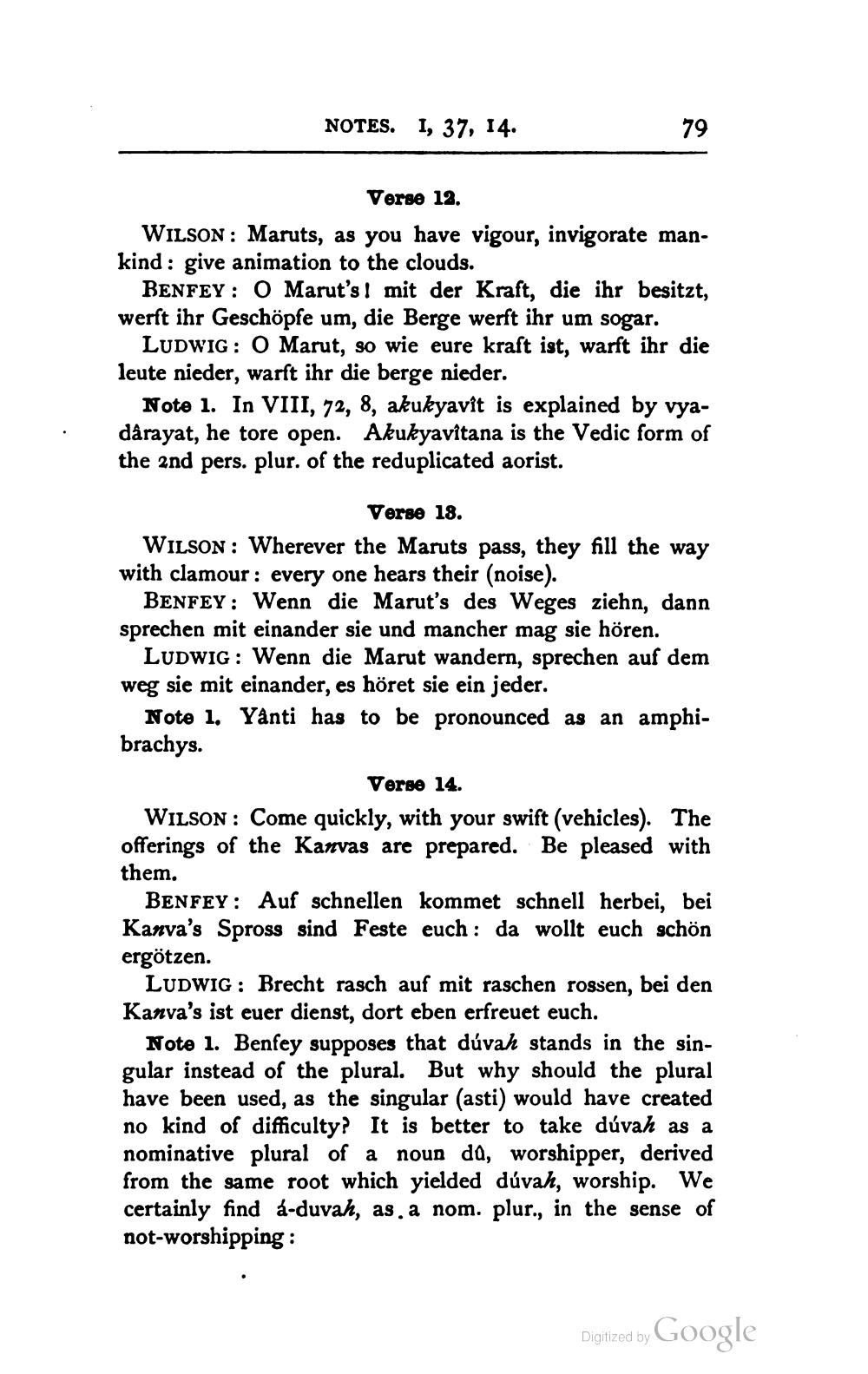________________
NOTES. I, 37, 14.
79
Verse 12. WILSON : Maruts, as you have vigour, invigorate mankind: give animation to the clouds.
BENFEY: O Marut's! mit der Kraft, die ihr besitzt, werft ihr Geschöpfe um, die Berge werft ihr um sogar.
LUDWIG: O Marut, so wie eure kraft ist, warft ihr die leute nieder, warst ihr die berge nieder.
Note 1. In VIII, 72, 8, akukyavit is explained by vyadarayat, he tore open. Akukyavitana is the Vedic form of the 2nd pers. plur. of the reduplicated aorist.
Verse 18. WILSON: Wherever the Maruts pass, they fill the way with clamour : every one hears their (noise).
BENFEY: Wenn die Marut's des Weges ziehn, dann sprechen mit einander sie und mancher mag sie hören.
LUDWIG: Wenn die Marut wandern, sprechen auf dem weg sie mit einander, es höret sie ein jeder.
Note 1. Yanti has to be pronounced as an amphibrachys.
Verse 14. WILSON : Come quickly, with your swift (vehicles). The offerings of the Kanvas are prepared. Be pleased with them.
BENFEY: Auf schnellen kommet schnell herbei, bei Kanva's Spross sind Feste euch: da wollt euch schön ergötzen.
LUDWIG : Brecht rasch auf mit raschen rossen, bei den Kanva's ist euer dienst, dort eben erfreuet euch.
Note 1. Benfey supposes that dúvah stands in the singular instead of the plural. But why should the plural have been used, as the singular (asti) would have created no kind of difficulty? It is better to take dúvah as a nominative plural of a noun da, worshipper, derived from the same root which yielded dúvah, worship. We certainly find á-duvah, as a nom. plur., in the sense of not-worshipping :
Digitized by
Digitized by Google




